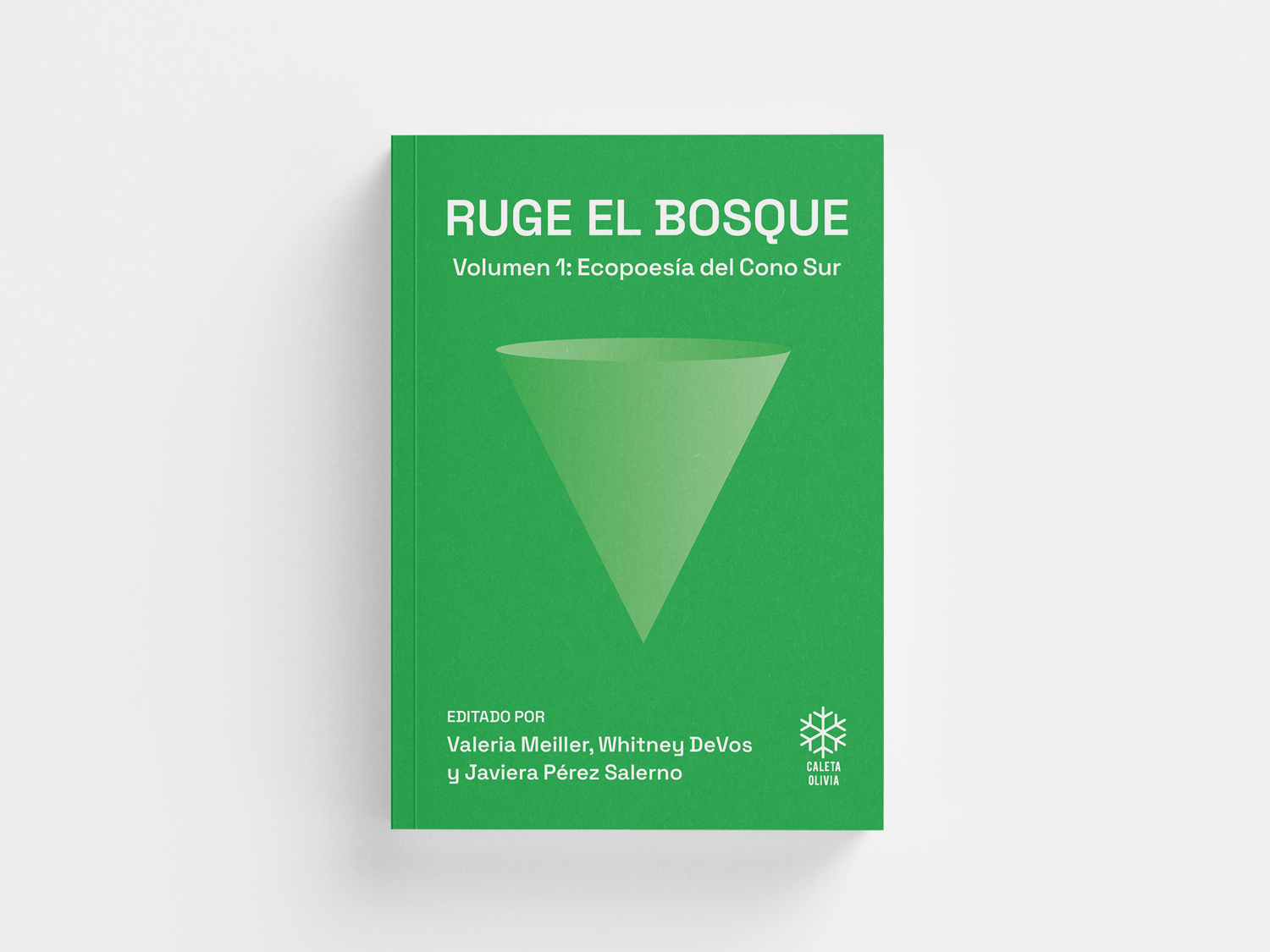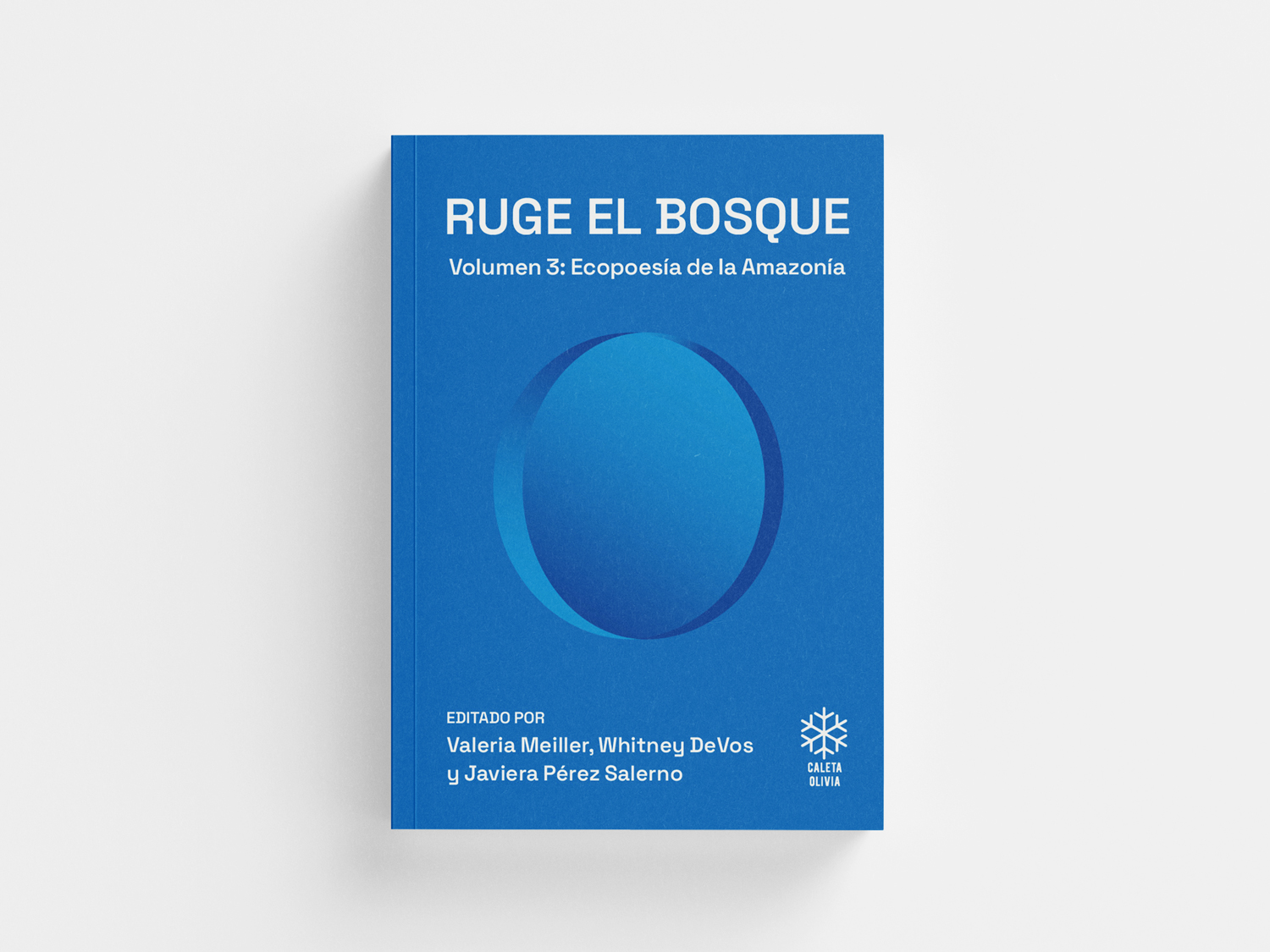VOLUME 1: CONO SUR
Caleta Olivia, 2023
Ruge el bosque. Volume 1: Ecopoetry of the Southern Cone brings together environmental poetry written from the territories known today as Argentina, Chile, Uruguay, and Paraguay—and their borderlands. Underscoring the coexistence of Indigenous, hybrid, and colonial languages within the Southern Cone region, the poetics of this volume collectively think through the planetary climate crisis from a number of pluralistic ecological, cultural, and linguistic perspectives. To learn more about the work in this volume, see “Wetland Poetics: Regional Situatedness as Planetary Practice” by Valeria Meiller and Whitney DeVos.
SEE MORE

VOLUME 2: MESOAMÉRICA
Caleta Olivia, 2024
Ruge el bosque. Volume 2: Ecopoetry of Mesoamerica. This plurilingual anthology gathers environmental poetic expressions written in Guna, Maya K’iche, Nahuatl, Belizean Creole, Garifuna, Yucatec Maya, Spanish and English. The volume indexes the cosmological and linguistic plurality of the Mesoamerican region composed of the current nation-states of Mexico, Guatemala, Belize, El Salvador, and parts of Nicaragua, Costa Rica, and Honduras. The included poetics demonstrate the importance of considering natural biodiversity and linguistic diversity as concomitant phenomena, and to reflect about the risk posed by colonial and capitalist extractivist models to the existence of Abiayala’s territories.
SEE MORE

IN PREPARATION
VOLUME 3: AMAZON BASIN
Ruge el bosque. Volume 3: Ecopoetry of the Amazon basin. This volume is organized around the ecosystem of the Amazon, the South American tropical forest that spans the nation-states of Brazil, Peru, Colombia, Ecuador, Guyana, Suriname, and Venezuela, as well as the French overseas department of French Guiana. Currently in preparation, this multilingual environment poetry book addresses the Amazon rainforest from a transactional perspective, with an emphasis on the territorial existence of indigenous nations whose cultures and languages are situated within the Amazon basin.

VOLUME 4: ANDES
Ruge el bosque. Volume 4: Ecopoetry of the Andes. The Andes are one of the most vulnerable regions in the world to climate change, largely because current economic inequalities increase the region’s vulnerability to the impacts of climate change. This volume seeks to delve into the poetic and ecological manifestations of Bolivia, Colombia, Ecuador, and Peru, as well as their border areas, emphasizing the intersection between their literatures and the fight against extractivism.

VOLUME 5: GUIANAS AND THE CARIBBEAN
Ruge el bosque. Volume 5: Ecopoetry of the Guianas and the Caribbean. This volume addresses the territories of the Guianas and the Caribbean with an emphasis on the ecological repercussions of slavery. Focusing on what theorist Katherine McKittrick refers to as “plantation futures,” “Plantation futures,” according to Katherine McKittrick, arise as the result of the totalizing violence of the plantation: a colonial and capitalist agrarian landscape whose internal structural relations still persist in the present. For McKittrick, poets from Afrodiasporic communities inhabit “post-slave violences to provide the context through which black futures are imaginable.” this book highlights contemporary decolonial poetics and politics written from Haiti, the Dominican Republic, Cuba, Trinidad, Tobago, Jamaica, Guyana, French Guianam and Suriname; as well as from coastal territories of Venezuela, Colombia, and Brazil. This volume is currently in the survey stage.

VOLUME 6: TURTLE ISLAND
Ruge el bosque. Volume 6: Ecopoetry from Turtle Island. Turtle Island is the name used by Indigenous peoples and Indigenous rights activists to refer to the territory corresponding to North America; including both the United Stated and Canadá. By honoring the Lenape and Haudensoaunee understandings of Earth, this volume focuses on the environmental, social, and political struggles of Indigenous peoples and migrant communities in these territories; emphasizing the voices of Latinx poets and the encounter of Spanish and English.
